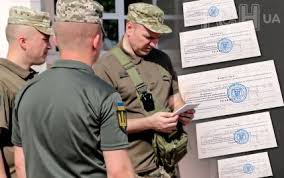How to Respond to Illegal Actions of the TCC: NAAU Prepares Methodical Recommendations for Lawyers
Introduction
In today's conditions, when the legal literacy of the population is growing, the role of lawyers in protecting the rights and freedoms of citizens becomes especially important. One of the urgent problems is the illegal actions of territorial procurement centers (TCC). With this in mind, the National Association of Lawyers of Ukraine (NAAU) has planned the preparation of methodological recommendations for lawyers that will help them more effectively protect the interests of their clients in cases of abuse by TCCs. This article will examine the main aspects of this initiative, the legal framework and practical recommendations for lawyers.
Illegal Actions of TCC: Definitions and Examples
Territorial procurement centers have an important role in ensuring the country's defense capability, but sometimes their actions may go beyond the law. Illegal actions of TCC can be:
Illegal conscription: Conscription of persons who have legitimate grounds for deferment or exemption from service.
Violations of the draft procedure: For example, non-compliance with the requirements for the medical examination of conscripts.
Abuse of official authority: Use of official position to coerce or pressure citizens.
Falsification of documents: Forging or changing documents relevant to the draft.
Legal Basis of Protection against Illegal Actions of TCC
The protection of citizens' rights in cases of illegal actions by TCCs is based on a number of normative legal acts:
The Constitution of Ukraine: Guarantees the basic rights and freedoms of citizens, including the right to protection against illegal actions of state bodies.The Law of Ukraine "On Military Obligation and Military Service": Defines the procedure for conscription for military service and the rights of conscripts.
Criminal Code of Ukraine: Provides for liability for crimes related to the violation of conscripts' rights.
The Administrative Code of Ukraine: Regulates the procedure for appealing decisions and actions of TCC officials. You may be interested in the following articles: lawyer consultation, lawyer consultation, document analysis, legal situation analysis, written consultation, document review by a lawyer, lawyers documents, lawyer help online, lawyer online , legal opinion, lawyer's legal opinion, lawyer online.
NAAU recommendations for lawyers
NAAU plans to develop methodological recommendations that will include the following main provisions:
1. Primary Actions of the Advocate
Assessment of the situation: Identification of facts and circumstances of the case, collection of evidence.
Client consultation: Explanation of rights and possible ways of protection.
Addressing the competent authorities: Addressing complaints to military commissions, the prosecutor's office, the court.
2. Preparation of Evidence Base
Documentation of violations: Collection of documentary evidence, testimonies.
Medical examination: Organization of an independent medical examination in cases of violations of the medical procedures of the draft.
Attracting witnesses: Identifying and interviewing witnesses who can confirm the facts of violations.
3. Legal Actions
Complaints and statements: Preparation and submission of complaints to higher military commissions, judicial and law enforcement agencies.
Legal protection: Representation of the client's interests in court.Public awareness: Public coverage of cases of wrongdoing to draw attention to and prevent similar cases in the future.
4. Psychological Support of the Client
Psychological consultation: If possible, refer the client to a professional psychologist for support.
Emotional support: Explaining to the client his rights and opportunities, which can reduce stress and anxiety.
Information about rights: Providing the client with full information about his rights and possible actions for protection.
Practical Steps for Lawyers in Client Protection
1. Analysis of the Situation
A lawyer should start with a thorough analysis of the situation, including:
Study of the case: Acquaintance with all available documents related to the draft.
Assessment of the legality of the TCC's actions: Verification of compliance of the TCC's actions with the current legislation.
Gathering information: Conducting interviews with the client and witnesses who can provide additional information.
2. Interaction with Military Commissions
Official Inquiries: Directing official inquiries to military commissions for additional information.
Complaints: Filing complaints about wrongful actions to higher levels of military commissions.
3. Judicial Protection
Preparation of a claim: Preparation and submission of an administrative or civil claim against a TCC.
Participation in court hearings: Representing the client in court, providing evidence and arguments in defense of his rights.
Appealing decisions: If necessary, filing appeals and cassations.
4. Interaction with the Prosecutor's Office
Notification of a crime: Sending a statement to the prosecutor's office about the commission of a crime by TCC employees.
Support of criminal proceedings: Provision of legal assistance to the client during criminal proceedings.
5. Public Activity
Public Speaking: Media appearances to draw public attention to an issue.
Cooperation with public organizations: Interaction with non-governmental organizations engaged in the protection of citizens' rights.
Conclusion
Illegal actions of the TCC pose a serious threat to the rights and freedoms of citizens. Lawyers play a key role in protecting the interests of their clients in such cases. Methodological recommendations developed by NAAU will help lawyers to respond more effectively to abuses by TCCs, using both legal and psychological tools. Joint efforts can reduce the number of offenses and increase the level of trust of citizens in the legal system of Ukraine.

































